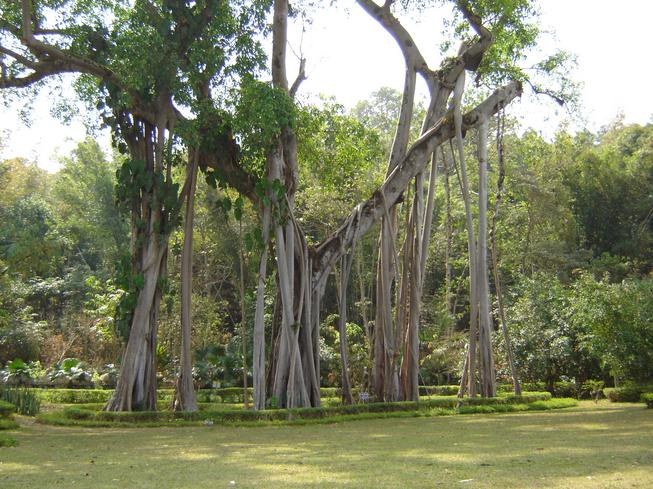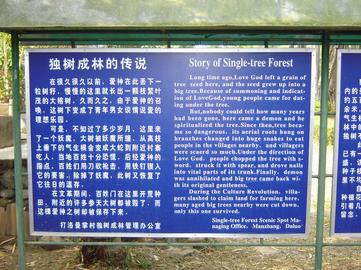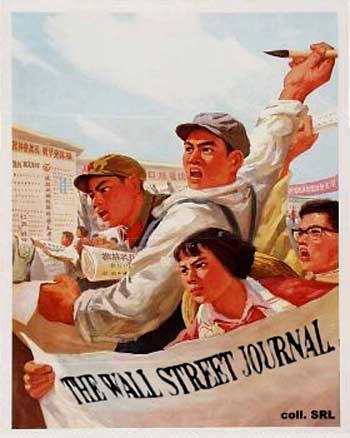My trip was long and strange and wonderful. It was also challenging and sometimes difficult. I saw some of the most amazing sights of my life and ate what had to be among the most exotic food on the planet. It was also a trip that brought up quite an array of emotions and thoughts. I don’t think any other trip ever made me feel so philosophical, so consumed with thoughts on where I belong in the world and what the purpose of my life should be. It’s a shame I couldn’t live-blog the entire trip, since I had such a steady stream of observations and saw so many fascinating sights. There’s far too much for one entry, so I’m hoping to write a series of posts, each about different aspects of the trip. I also have a huge number of photos, and will try to drop them in over the next few days. Some are quite incredible. Today I’m just going to write about how the trip came to be, and how it started off.
Two years ago I set out on a trip to South China that was to culminate in a two-week journey through Yunnan Province. I had planned it for months. A friend of mine in Beijing who grew up in a Yunnan village helped me work out the details, and my closest friend in America was flying out to Beijing so we could go together.
Unfortunately, I never made it west of Guilin, where I received an urgent call from my travel agent: China was shutting down the hotels in most Yunnan cities, and the road to Lijiang had been blocked to prevent tourists from entering. It was the peak of the SARS catastrophe and China, after being caught lying through its teeth about the extent of the epidemic, was now going out of its way to demonstrate its determination to contain the disease. This was probably the right thing for the CCP to do, even though it ruiined my trip. As I wrote at the time,
I have just canceled my entire vacation in South China, and my friend and I are scrambling to figure out a way to get out of the country to a place we can afford to stay for a couple of weeks, without having to be quarantined most of the time.
China is virtually closed down, even in SARS-free zones. I appreciate the fact that they are trying to prevent the spread to rural areas. But closing down outdoor parks and open-air boats seems heavy-handed. Next post will most likely be from a different country.
The next post was from Thailand. A tumultuous year in China had come to a tumultuous close.
So there was a somewhat mystical quality to my trip to Yunnan province that ended on Thursday. It was about closure, about keeping my promise to return to China and visit the countryside that was dear to my heart, though I’d never actually seen it. It was also about keeping other, more personal promises that I won’t go into here. Suffice it to say that for me this was far more than an ordinary vacation.
It didn’t get off to a promising start. I had been watching the weather carefully for weeks priot to the trip and was happy to see that most days in Kunming were in the 70s, with Lijiang several degrees cooler but still quite comfortable. So a sense of dread came over me when my partner and travelling companion said to me the day before the trip, “Are you aware that it’s snowing in Kunming, and the temperature in Lijiang is between 20 and 30 degrees?” I didn’t believe it — how could the weather change so drastically in 24 hours?
I looked up the weather on the Internet and felt absolutely sick. The entire trip was about scenery and outdoor travel. The predictions for the next several days were for heavy rain and snow, with record low temperatures. A huge blast of cold air from the north had turned much of the country into an icebox. We packed gloves and scarves and winter coats and hoped for the best. Inside, I was terribly disappointed and had serious doubts about how enjoyable our much-anticipated vacation would be.
I didn’t feel much better when the pilot of my flight from Hong Kong to Kunming announced that Kunming was in the grips of “rather bizarre weather”; it was about 31 degrees and snowing heavily. What can you do? I simply resigned myself to the fact that you can’t change the weather and all I could do was make the most out of the cards God was dealing out.
Kunming, the city of eternal springtime, was a chaotic mess of slush and ice and heavy snow and absolutely zero visibility. I couldn’t even see out my taxi window as I rode to the hotel. All I could see was snow and haze. The snow was so heavy, the flight attendants handed out free plastic raincoats as we left the plane.
The hotel did little to cheer me up. The Bank Hotel (Bang Ke Fandian) has a great reputation, but the lobby was ice cold and the lights were out. This is going to be some trip, I said to myself. I met my two travelling companions at the hotel (my aforementioned friend from America and my Beijing friend who grew up in Yunnan). Because of the oppressive weather, we had dinner in the hotel restaurant. It was unheated and we wore sweaters and coats as we ate.
The next morning did little to lift my spirits. The visibility seemed to be even worse, if that were possible, and the snow was still coming down. I met the local travel agent who was handing my flights and he said it was the worst weather Yunnan had seen in 18 years. Luckily, we were scheduled to fly that morning to Xishuangbanna, down south by the China-Burma border. The weather was warmer there, and after a few days of thunderstorms it was clearing up. Would there be light at the end of the tunnel? I was still skeptical.
It was only when we alighted from the plane to Jinghong that I felt the vacation was going to be what I had envisaged. Gone were the snow and ice and gloom, replaced by fresh air and lush tropical scenery. I felt for a moment that we were in another country, and I felt a huge sigh of relief; that afternoon the sun came out and we had almost perfect weather for the duration of the trip. The cold wave lifted from Kunming the next day, and when we returned about 10 days later it was in the mid-70s.
Jinghong is interesting but unremarkable. What’s remarkable are the forests and mountains and minority villages that surround it. For the next three days we hired a taxi each morning and went on all-day outings to the differrent sights. Most spectacular was the cable car ride above the tropical rain forest, where the vistas were unbelievably beautiful, and every appeared natural and untouched by man. This was a big relief, because so much of the scenery in the area has been compromised. One issue I had as we drove through Xishuangbanna in our taxi was the desecration of so much of the natural beauty. We would see a gorgeous mountain, but then we’d see that a large section of it had been denuded of trees and strip-mined, leaving a huge ugly scar on what should have been pristine wilderness. Or we’d pass a picture-perfect scene of farmers harvesting rice or plowing a field with their water buffalo, only to have the image shattered by the hideous sight of a mountain of rotting tires or slabs of concrete or an ancient tractor rusting in the field. The contrast between the most splendid natural beauty and manmade atrocities were stark and frequent. So the rainforest trip was special, because everything was unspoiled.

This tree is one of the big tourist attractions in the Xishuangbanna rain forest. It is a single tree that has spread itself out to become a little jungle unto itself. An entire mythology surrounds this strange natural phenomenon, as the next picture explains (click to enlarge).

We walked through the rain forest for several hours, and it was easy to forget we were in China; it felt more like Brazil or Indonesia.
I’m still recovering from the 24-hour trip home and will have a lot more to post soon.

Comments